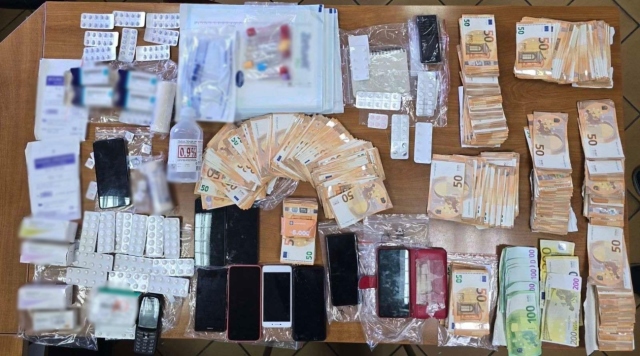Employees from EFKA, nurses at the General Hospital of Agrinio, processors, and a doctor were implicated in a criminal network uncovered by the “Indestructible” investigation by EL.AS.. This group was making money by falsely claiming to facilitate the issuance of favorable outcomes from the competent health committees of KE.P.A.
Reports from protothema.gr indicate that the operation was active at least since early December 2024, with a 58-year-old private individual from Agrinio identified as the leader, who received funds from the organization’s “services.”
The leader assumed the role of a processor, sourcing a diverse clientele and directing them toward fabricating false medical conditions.
How They “Transformed” Clients into Bedridden Individuals
The accused employed various methods—administering pills to the elderly, applying patches, using Betadine on exam subjects, and inserting catheters—to create the appearance of bedridden and helpless individuals before the committees. They also ensured that other EFKA employees intervened when possible to maximize the organization’s illegal profits.
According to EL.AS, the group primarily focused on presenting false clinical pictures of vulnerable patients to deceive KEPA commissions and facilitate the approval of benefit claims.
Understanding the procedural framework of the committees, the organization sought to manipulate the physical evaluations of its “clients.”
To achieve this deception, the network instructed either the relatives or the clients themselves on administering sedative substances (pills), using braces or wheelchairs, employing incontinence diapers (babylino), applying Betadine to certain body parts, and using specialized mattresses for bedridden individuals, often with assistance from other members even in solo cases.
Utilizing Hidden Communication Methods
The leader employed a ghost phone and Viber for communicating with members and “clients,” adopting the identity of a fictitious individual to evade law enforcement detection.
When communicating with an employee of NFCA, the leader also used landline connections to reduce the likelihood of being tracked.
Additionally, one of the arrested individuals, also an EFKA employee, used his brother’s phone to contact the leader for guidance regarding his role in the C.P.A. committees.
What the Evidence Revealed
Analysis of phone communications, seized handwritten notes, and documents from the Local Directorate E.P.C.A. revealed that the organization issued fraudulent decisions in just 13 cases, resulting in the illegal collection of at least 173,873 euros as retroactive payments. This included at least 12 fraudulent decisions for an additional monthly allowance of 846 euros in a lump sum starting in 2025, at least two decisions for a similar allowance beginning in 2024, and one for 795 euros starting in 2023.
A monthly lump-sum allowance is considered a recurring payment for as long as the beneficiary lives. Consequently, the Greek State faces an estimated loss of 10,152 euros annually for each beneficiary.
This results in forecasted losses of 121,824 euros per year starting from 2025, 20,304 euros per year from 2024, and 9,540 euros per year from 2023.
Ask Me Anything
Explore Related Questions

















